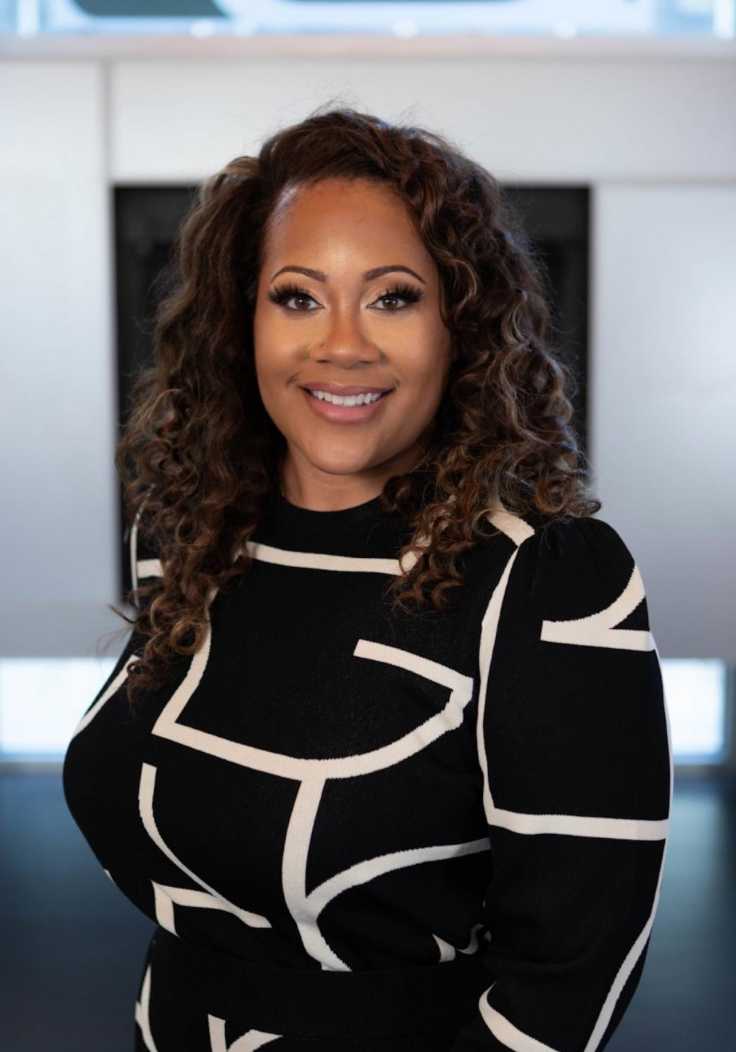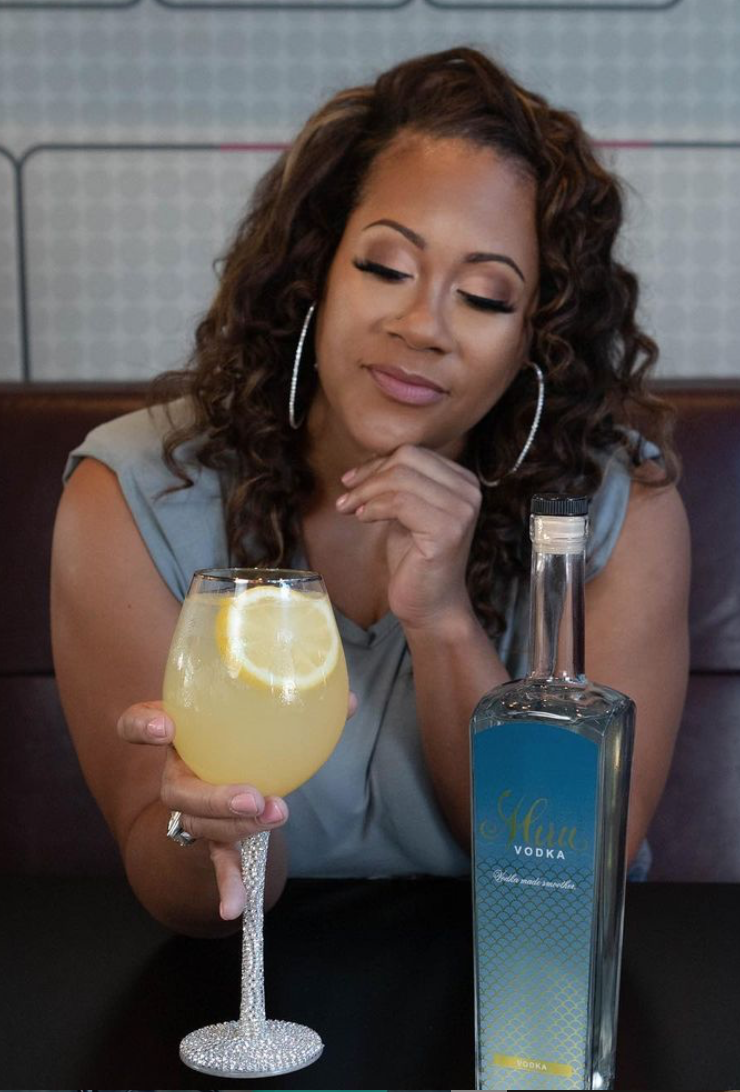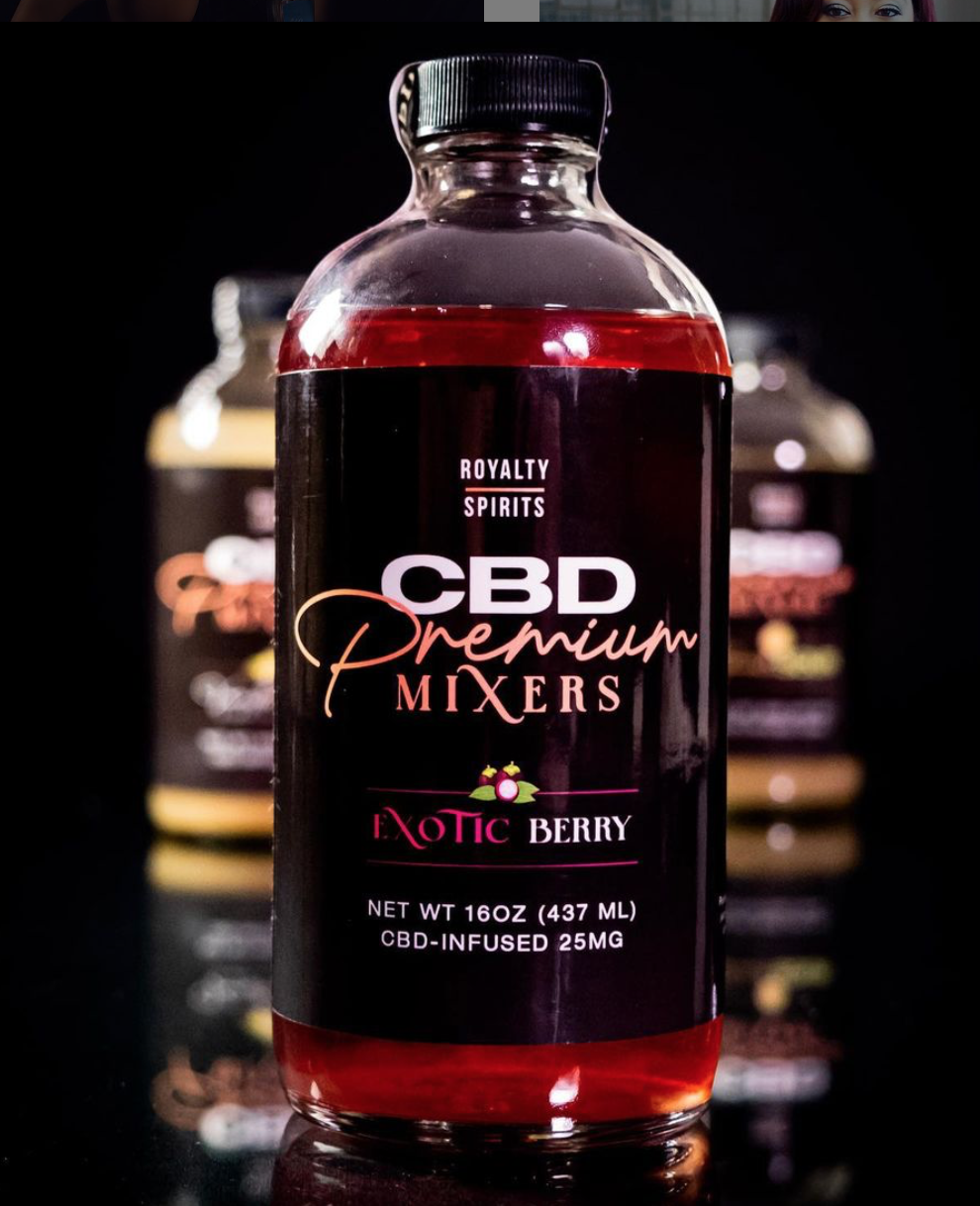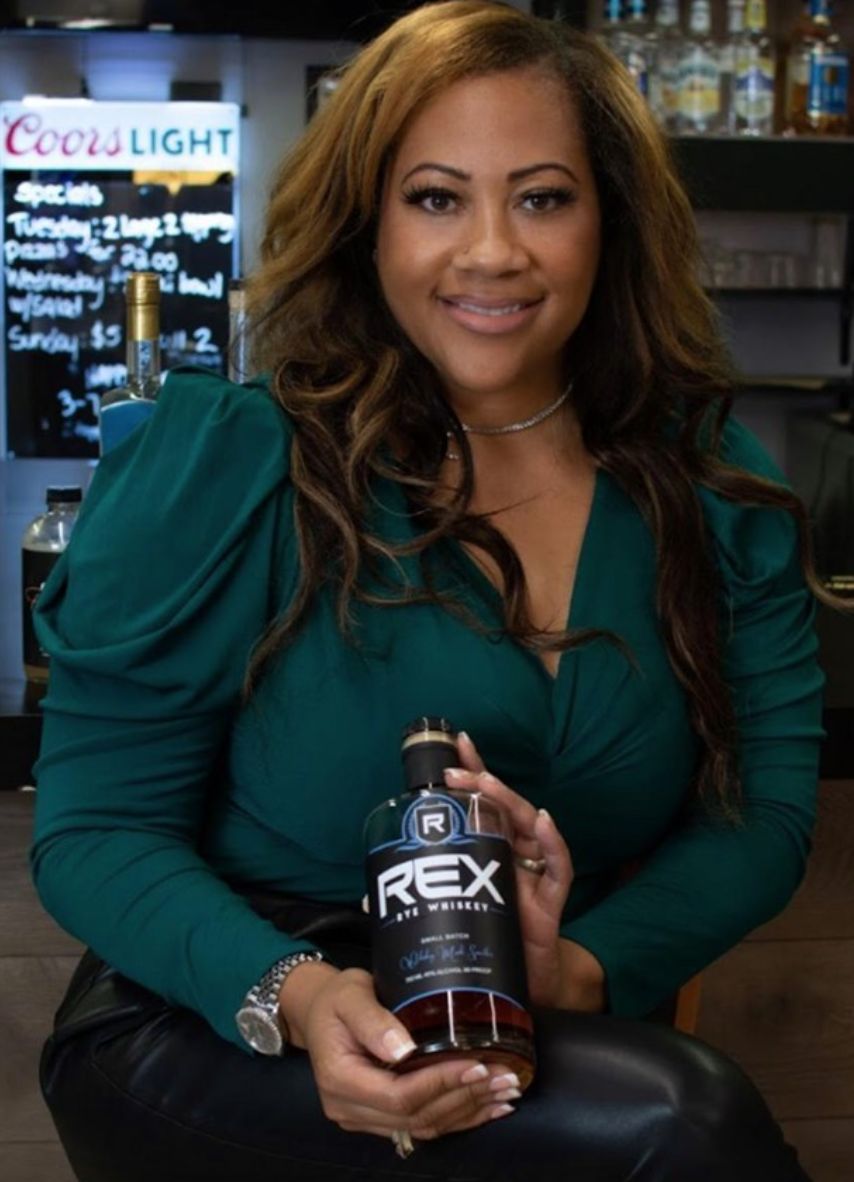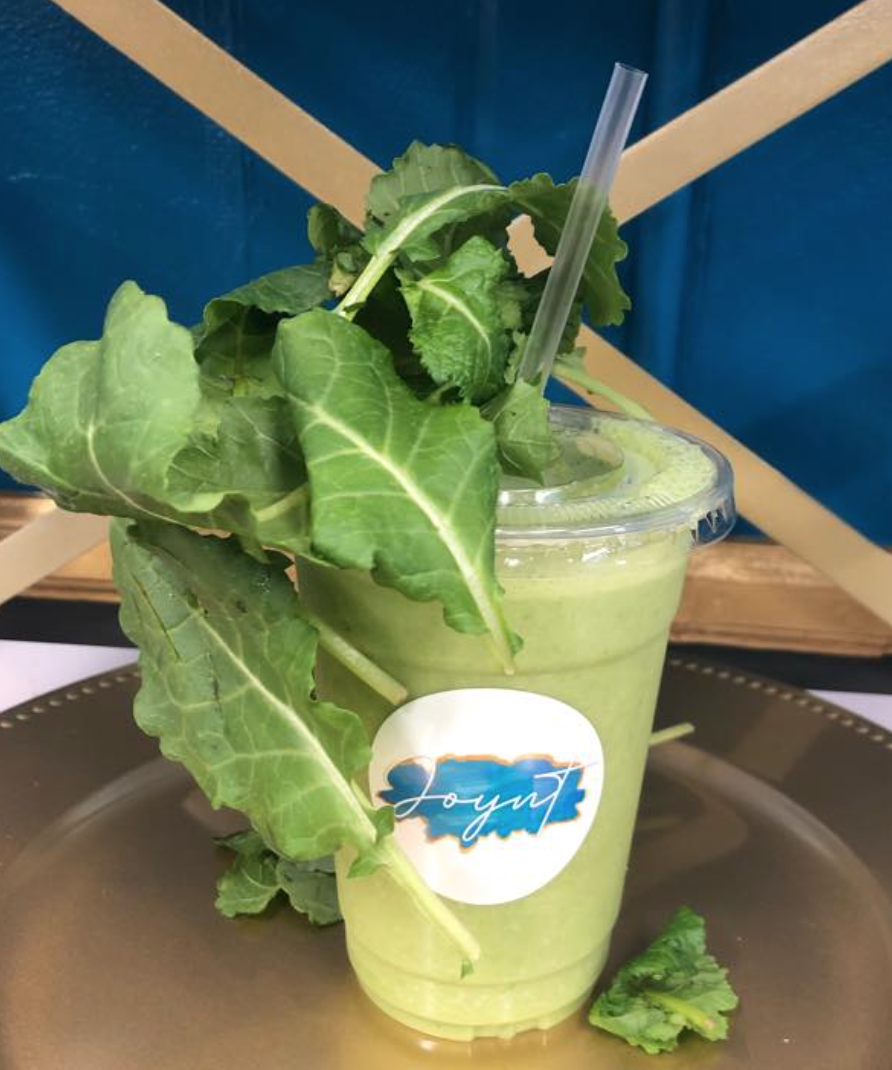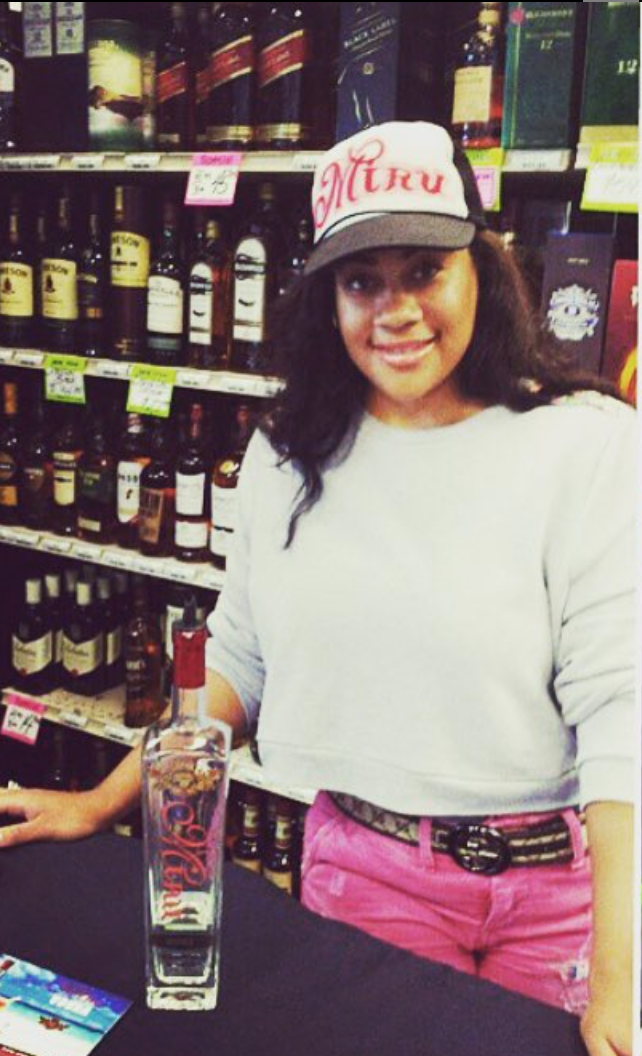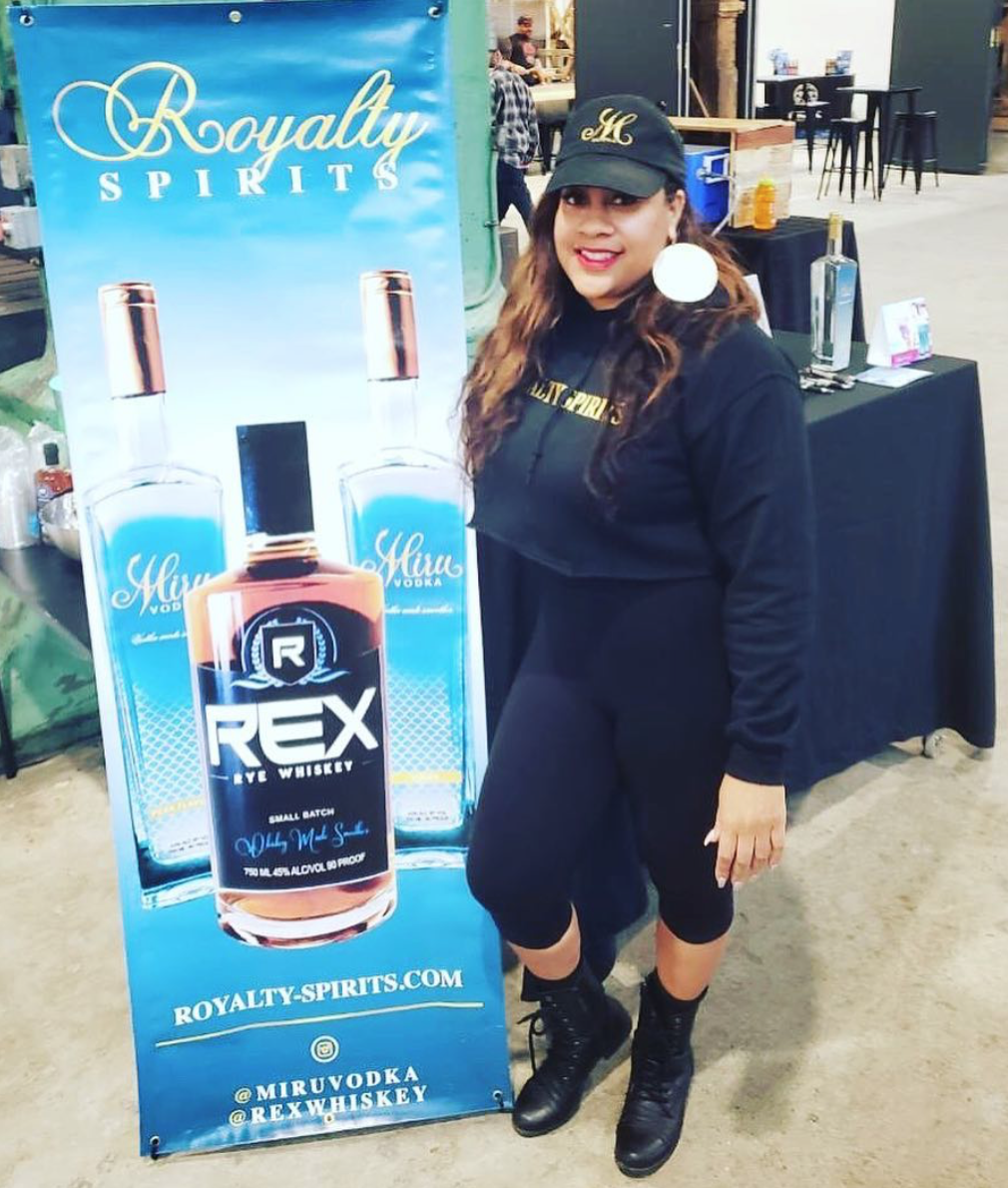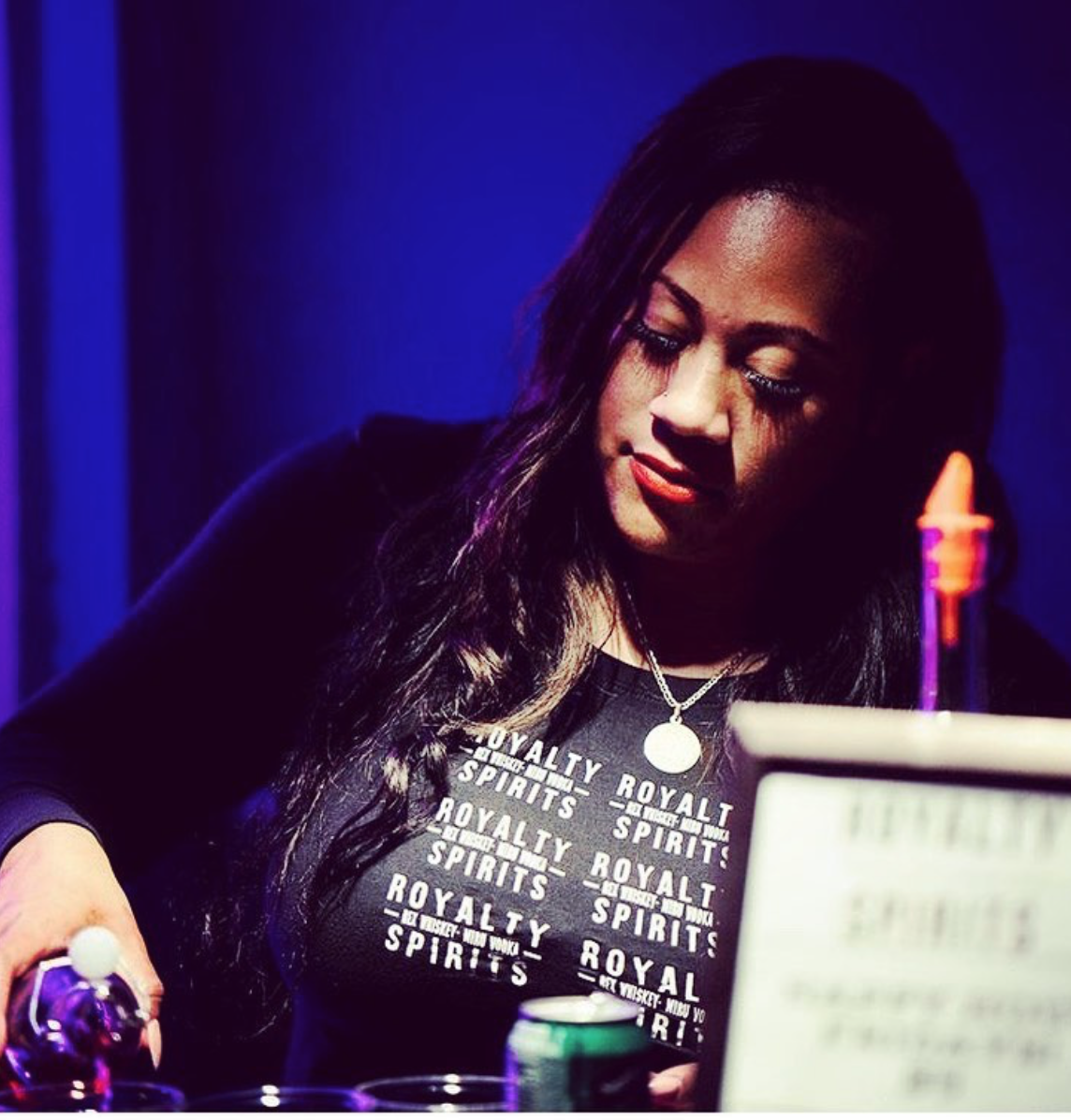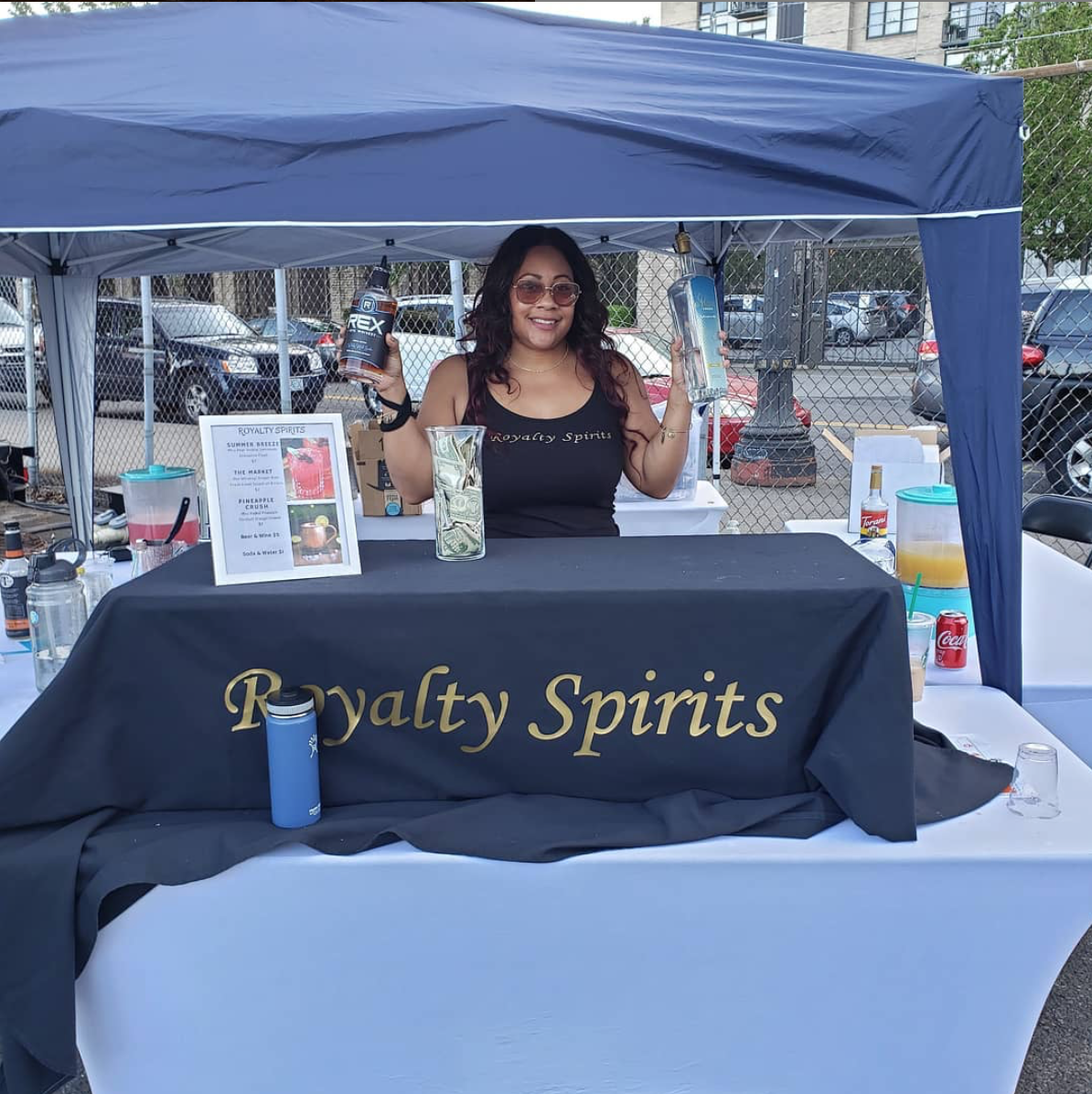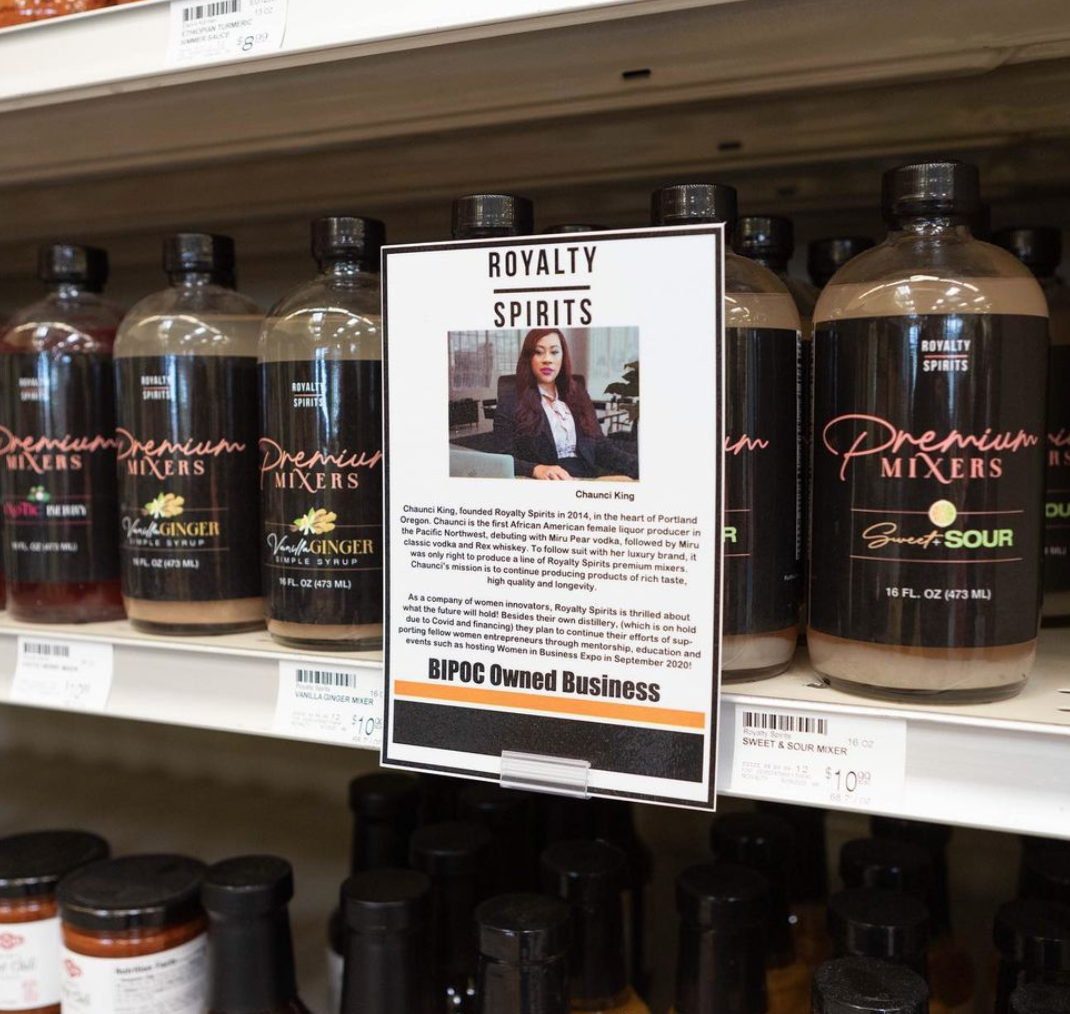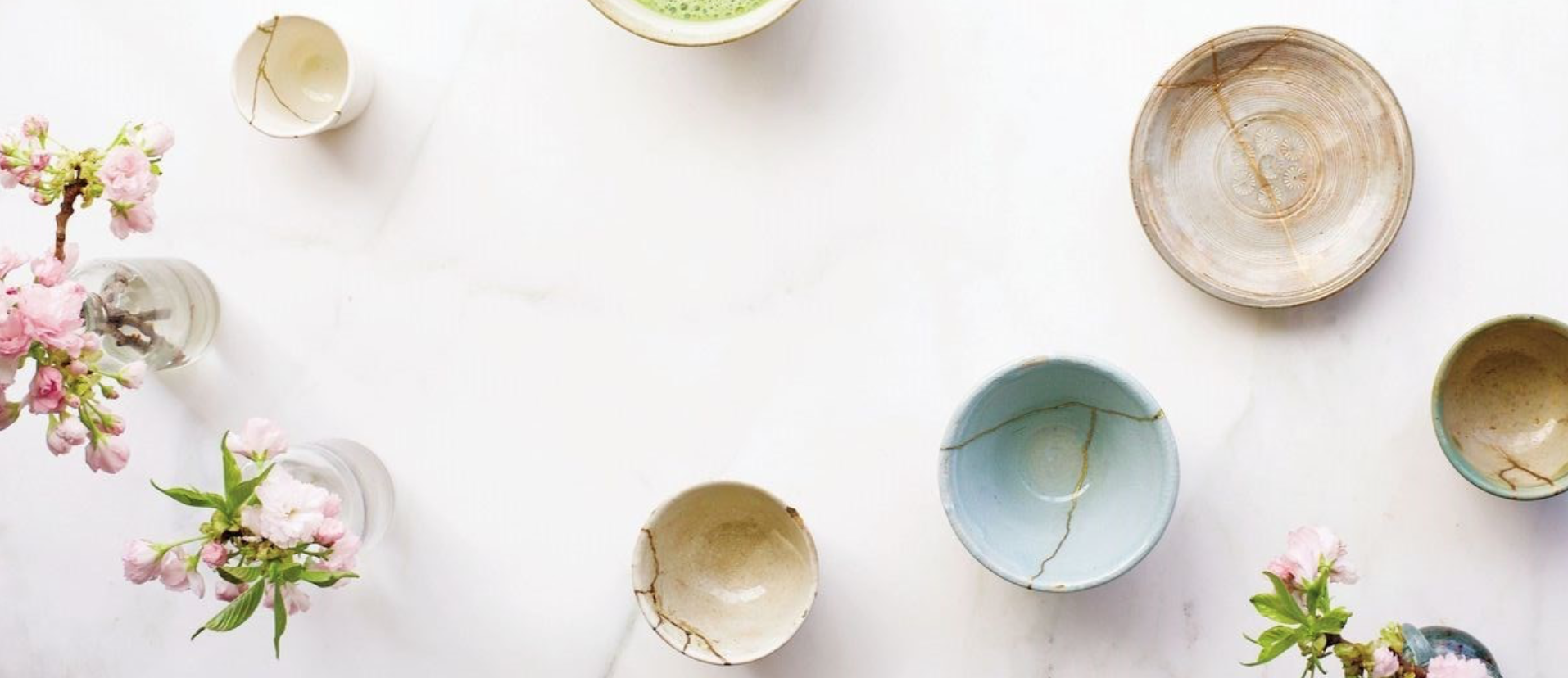Chaunci King, Founder and Owner of Royalty Spirits
ALIST Women-Owned Blog Series features Portland-native Chaunci King. She’s the founder and owner of 5 different brand entities across Fashion, Spirits, and the Cannabis industry. In this interview, Chaunci shares the many breaks, good and bad, in her 17-year entrepreneurial career. She also offers a sneak peek into her most recent business wins.
The Gold In The Breaks
Unlike the other 7 founders I’ve had the chance to interview for this blog series, I was already a customer of Chaunci King’s when we sat down to talk on the last day of Women’s History Month in March. After our conversation, my admiration only grew for her. Many news and media outlets cover Chaunci as the first African American woman to own a Spirits company in the PNW, but I’m lucky to get a more intimate view into a true legacy maker. In this interview, Chaunci shares an honest glimpse into her beginning, her heartbreaks, and her triumphs at each stage of her entrepreneurial journey.
For 17 years – 2004-2021 – Chaunci established 5 different brand entities: Trendi Collection, Royalty Spirits, Miru Vodka, Rex Whiskey, and The Joynt. With her co-founder Michelle Hicks, she opened Portland’s first CBD juice bar in 2021, while launching a whole line of premium mixers and CBD products. At every step, women influenced Chaunci’s path.
Chaunci Carmel King was born in Portland, Oregon. She went to Wilson High School (now called Ida B. Wells) and then onto Cal State Hayward (now called Cal State, East Bay) to receive her bachelor’s degree in psychology. As the first grandchild in her family to graduate high school and go on to earn a bachelor’s degree, Chaunci walked across the stage proud at 5 months pregnant with her son who is now 19. This was a new beginning for her. Being the first, I asked Chaunci who influenced her path.
“Between my mom and my aunt, that’s where I got my strong will and independence. My mom, Carlotta, was a strong, single parent to me and my brother. I saw what she went through. I knew I needed to do more so I didn’t have to struggle when I’m at that stage of my life, Chaunci explained.
“My aunt Oneda is the other female influence in my life. She was a model, an entrepreneur, and a business woman leading a glamorous life. I used to stay with her every summer and it showed me another way of living. She instilled in me that you can maneuver through life, in a successful fashion, as a black woman. When I went to college, we lived together. Having her in my life always pushed me and that’s where I got the drive to be powerful. She’s still a force to be reckoned with at 74. I’ve never ever seen her without makeup. Even being in the house and going nowhere, she’ll have lipstick on.”
We both laugh and I smile at the incredible women in Chaunci’s life. I can see both Carlotta and Oneda in Chaunci. A true family support system.
Even after graduation, Chaunci stayed in the Bay Area. She became a director of an at-risk youth program in west Oakland when she was 22. It led her to being hired on by the City of Oakland as an HR analyst.
“It was the best job I’ve ever had,” Chaunci said with such ease. “I was 23 years old, making 65K a year. It was great, but I’ve always been an entrepreneurial spirit. I knew I would never be satisfied with a 9-5 job, ever. While working for the city, I opened a clothing boutique called Trendi Collection.”
Chaunci was a bit before her time. She set up an online clothing store in 2004 before social media was even a thing. With roots in Portland, she brought the brand to Oregon during her visits. It started small, but it grew. Hosting what are now called pop up shops, Chaunci sold clothes she curated from LA’s Garment District, now called the Fashion District, and then she and her mom went on to procure items from the Magic Fashion Tradeshow in Las Vegas.
“My mom is my ride or die,” giggles Chaunci. “She flew to Oakland from Portland. We’d drive to LA to buy clothes and then fly to Las Vegas to order more clothes.”
To expand the business in 2005, Chaunci decided to open up a storefront in Portland while still living in the Bay Area. Her mom and brother offered to run the store for one year to give Chaunci time to consider what she wanted to do, but in the end she felt like moving back was the right move. At the time, she was suffering from anxiety and panic attacks.
Reflecting back, Chaunci shared, “these panic attacks were a new thing. I didn’t know what it was. I got scared and wanted to go home to be with my mom. I later learned anxiety was hereditary on my dad’s side of the family.“
Trendi Collection did open on MLK and Knott, right across the street from the Nike store. As promised, Carlotta managed the boutique until Chaunci quit her HR position with the City of Oakland and moved back home with her son in 2006. Things were going well until the 2008 recession hit. Business went down and Chaunci had to make a decision.
“End of 2008 I had to close the business. It was tough because I felt like I failed. I just couldn’t go on because I wasn’t making any money. I went on to work for Kaiser in HR for about 5 years, got married, and had my now 9 year old daughter in August.”
When Chaunci returned to Kaiser from maternity leave in October, they were restructuring. She wasn’t in love with the job so when they offered her a severance package, she took it. With a new baby, Chaunci and her husband made it work to extend her time at home and she loved it. After the first year, she was ready to get back to work. She took on a few temp jobs and this transition phase in her life also included a divorce. As she found her footing, Chaunci and her kids moved in with Carlotta. Here was Chaunci again, with another life reset. What was next?
“Before my husband and I got married, we went to Mexico and met a woman called Miru,” Chaunci recalls. “I loved the name. For a minute I thought about naming my daughter Miru, but I later learned it references a sea goddess who dominated male souls. While bartending on the side, I decided to make my own vodka and Miru seemed perfect for a woman brand in the male dominated spirits industry.”
While going through the divorce, being a mother of 2 kids, and holding down a few temp jobs, Chaunci met with distilleries to learn how to develop Miru. She knew she wanted a light, pear flavor that wasn’t super sweet and syrupy like the other products out there, but she didn’t really know where to begin. Through Google searches, she meet with a few distillers in Portland, but eventually picked Oregon Spirits Distillers in the Bend, OR for mentorship and support to develop her vodka. However, once she paid for their services everything changed. Without a contract on the terms, she was left with false promises of mentorship and networking connections with distributors in the industry. With dollars already sunk, she completed distilling her first batch, severed ties, and was left with a product with no buyers. Miru just sat housed at the OLCC, while Chaunci figured out her next move.
“I was banking on having those connections so I had to start from scratch on how to move my product. I searched for businesses online, did a lot of liquor store and bar tastings, got involved in programs, and built up my connections in the industry. I had to learn how to do it by myself. It was crazy. I had no clue.”
Chaunci explains what she learned. “Since Oregon is a closed state, the OLCC runs everything. Any alcohol coming into Oregon stops at the OLCC. The OLCC sets your pricing, determines where it’s going to be sourced, and which stores will carry it. They control everything with the exception of me being able to control my own wholesale price.”
With such a difficult industry to break into, Chaunci put every liquor store in town on speed dial. She and her supporters called them all and asked if they carried Miru Vodka in order to get the word out. And it worked. Curious about what the product was, liquor store owners would contact the OLCC asking about it. Chaunci now had a lead and went onsite to host the tasting with the product the store purchased. It was also her job to sell it to customers so the owner doesn’t get stuck with it. Do that, and you have leverage to persuade the owner to order another case. One by one Chaunci built her relationships. She did the same thing with the restaurants and bars by doing pop ups and offering incentives to get on the menu.
Ready to take things to the next level, Chaunci entered and won the Startup PDX Challenge in 2015, along with 5 other businesses. She won a 25K grant and mentorship resources for a year (2016-2017). In addition, her business was selected by well-known advertising agency, Wieden+Kennedy to rebrand the Miru bottle and label design. From 2004 when she opened Trendi Collection to making and releasing Miru Vodka in 2014, this was the first time Chaunci had real financial and expert help in a decade of staying afloat. Social media was taking off and Chaunci learned about marketing and branding from the mentors assigned to her business. However, there weren’t too many mentors in the Spirits industry. Chaunci told me how she would get put in these pods with Food & Beverage, but that’s totally different from Spirits.
The grant and increase in sales gave her funds to hire Brand Ambassadors to do the liquor store tastings and pop ups throughout the city. Things were expanding.
“I was invited to participate in these pop ups because I was connected with Mercy Corps and MESO. They helped me get in front of the right people. But when the program ended in 2017, I felt done. My sales were crap. I was running out of money. I was totally self-employed and I was over it. It’s hard as an entrepreneur to get any type of financial resources because banks want collateral you don’t have and there are very few grants for small businesses. MESO gave me a loan and as collateral I put up my work truck title and a pair of diamond earrings my husband gave me. I said to myself, I’m going to give this one more shot.”
With the loan, Chaunci was able to pay for the production of her new Rex Whiskey and the Miru Pear Vodka in 2018. However, there weren’t enough funds to pay for staff. Chaunci was all alone again. She had the inventory, but sat wondering if she made the right decision since she didn’t have the help to sell the products. Deflated, Chaunci started to shop the business around to see if there were any interested buyers, but there were no takers. In late 2019, she had a conversation with a woman who gave her the extra nudge she needed.
“She probably doesn’t even know she inspired me,” Chaunci explained. “She talked about how she admired me and I was thinking, why? I told her I was struggling and I was on the verge of selling the business and walking away after 4 years. She responded with, ‘You can’t walk away. You need to keep pushing. Things will turn around. Put your everything into it one last time.’ And so, that’s what I did. I started over.”
Chaunci started up the liquor store tastings and pop ups again, but this time she added another component. Collaborating with Melinda from Miss’ipi Chef, Chaunci launched her mobile bartending cart featuring her products. Melinda had a catering contract with Oregon Historical Society and she needed a bartender for a series of 6 events. The income kept her afloat and more and more people were trying her products. The two continued to work together as Melinda won more contracts and Chaunci took on gigs of her own by bartending at parties and weddings.
“Sales were going up. Things were looking good. And then COVID,” Chaunci said clearly frustrated. “People are still going to liquor stores, but they are getting what they know and getting out of there. Liquor stores sales went down. Bars and restaurants were closed so no income there either. Right when I got my mojo back, things stalled.”
Thankfully, the OLCC made adjustments in May 2020. Small distillers were allowed to sell online and either deliver in state or have instore pick up. This put Royalty Spirits back in business. As the Black Lives Matter movement unfolded, Chaunci noticed a wave of new customers.
“Everyone started supporting black-owned businesses and my sales went ting, ting, ting, ting. I was like, what is going on? I had great sales all summer and I introduced a quarantine kit during the holidays, which featured a recipe book I wrote while in isolation. Then I was fortunate to receive more grants.”
On February 1, 2021, Chaunci shared the news that she won a grant from The Queen herself, Beyonce. BeyGood teamed up with the NAACP to expand economic opportunity by awarding grants of $10,000 on the 15th of each month through the end of 2020. Royalty Spirits was a round 4 recipient of the Black-Owned Small Business Impact Fund. Chaunci shares how she was notified.
“I got an email at 4:30 in the morning saying, ‘Congratulations. You are the recipient…’ I was like, WHHHHAAAT! YEEEESSSS!”
In March 25, 2021, the Portland Business Journal featured Chaunci as the newly supported company of the NuLeaf Project, who are unapologetically working to build generational wealth for Black and Brown people through the legal cannabis industry. The grant supports her new endeavors in offering CBD premium mixers under the Royalty Spirits product line and the opening of Portland’s first CBD Juice Bar, The Joynt. Founded by Chaunci King and Michelle Hicks, who are both Portland natives, The Joynt is an upscale juice bar and CBD boutique offering a unique experience, while serving up organic fresh juices and delicious smoothies. In addition to blending juice/smoothies, they also retail the best third party tested CBD products around. Their mission is to promote cannabis education in their community.
If that wasn’t enough momentum, Chaunci learns of different companies pledging to carry Minority-Owned Products. Total Wine & More reached out to her and the terms have been finalized to carry her Miru Vodkas in 5 states / 35 stores starting in August. She is in discussions with The Hyatt hotel to carry her products first locally with a potential to go national.
Chaunci King’s Premium Mixers in aisle at New Seasons Market.
I am in awe. As Chaunci speaks, she is so humble. I remind her that not everyone can do what she’s done. These milestones are huge and she nods in agreement as I speak.
“The things I went through from 2011 – 2013 would break most women. You’re right. I have to pat myself on the back sometimes.”
Yes, Chaunci. You most definitely should pat yourself on your back for weathering the countless zigs and zags of entrepreneurship. But this isn’t about being strong enough to not break. There were times you did break and all those pieces are what tell your beautiful story. It’s ok to break. I try not to subscribe to the “strong woman” mantra as a service to myself and all women. What’s important is how you put yourself back together again. And what I hear is resilience and resourcefulness to how Chaunci continues to build, ride the entrepreneurial wave, and reap the rewards on the other side of the risk. I tell Chaunci the story of Kintsugi. I learned of it watching the Today Show.
Many of us break a bowl or vase and think: garbage. But the Japanese art encourages us to the see potential for beauty in reconstructing the broken pieces. - Candice Kumai
Kintsugi is the Japanese art of putting broken pottery pieces back together with gold — built on the idea that in embracing flaws and imperfections, you can create an even stronger, more beautiful piece of art. Every break is unique and instead of repairing an item like new, the 400-year-old technique actually highlights the "scars" as a part of the design. Using this as a metaphor for healing ourselves teaches us an important lesson: Sometimes in the process of repairing things that have broken, we actually create something more unique, beautiful and resilient.
Kintsugi and Chaunci King go together in my opinion. We must honor and recognize all of the moments we break as moments of strength vs. weakness. This is the true story of our climb. Thank you, Chaunci for sharing your story so candidly. All your gold breaks are what make you a true Royalty Spirit.
If you would like to support Chaunci, please visit her website at https://royaltyspirits.biz
ABOUT THE WRITER
Amanda Mailey is the owner of ALIST and a new indie author who released her first book sidetracked in July 2020. She’s a lifelong writer specializing in observation and reflective narrative. She grew up in Oregon and graduated with a journalism degree from the University of Oregon.
As a mixed race Filipina-American woman, Amanda is passionate about advancing women- and bipoc-owned small businesses and leaders in her community. Through this blog series and social media, Amanda centers and promotes the stories and achievements of local women owners.

